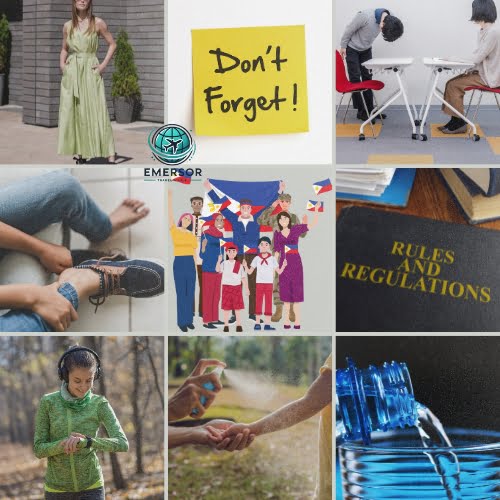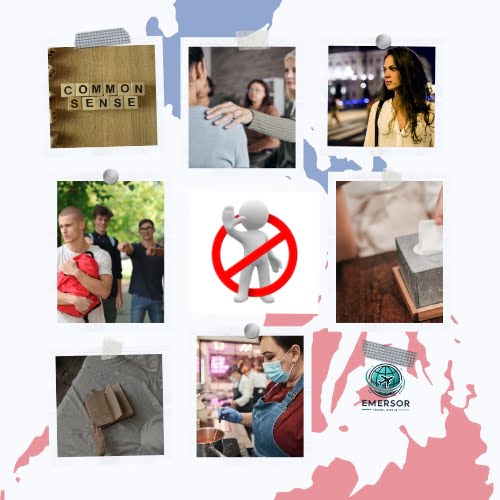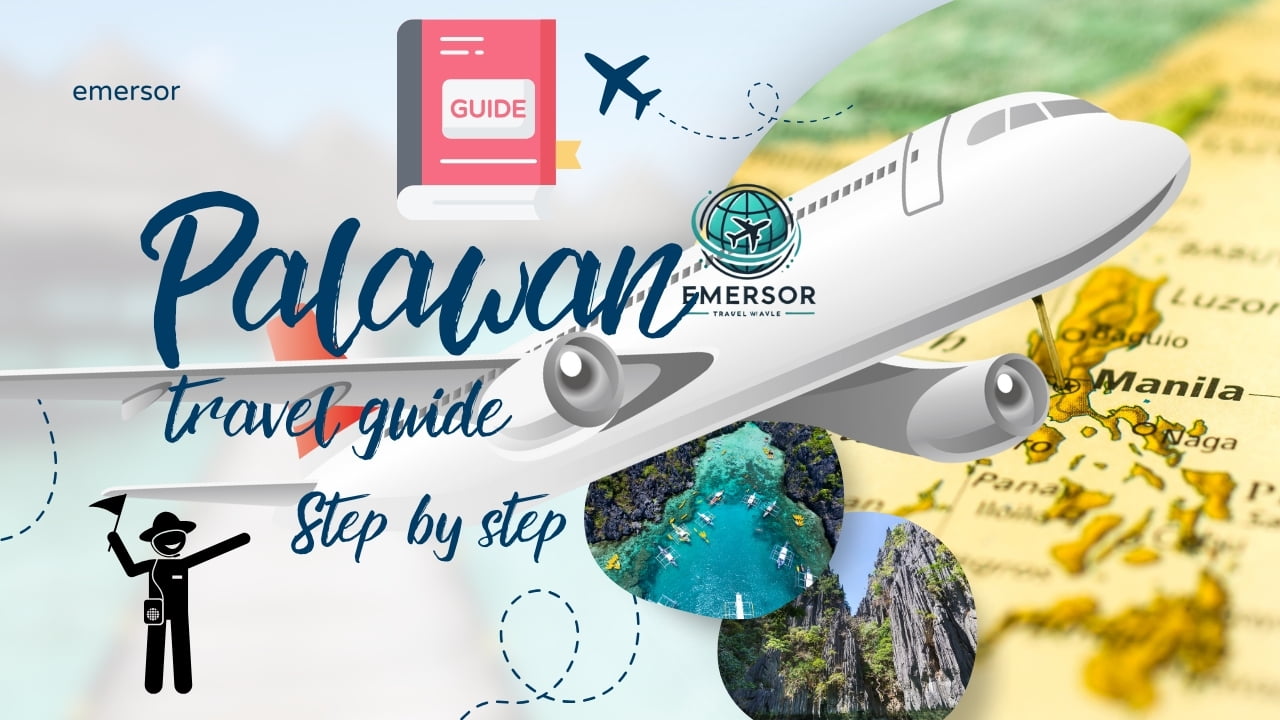In the case while inside the country it would be useful to follow some certain rules to avoid while travelling.
Here’s a broad aspect to help you with your behaviors as well as your manners:
Dos

Respect Local Customs
Dress Sensibly: In the countryside or at shrines, one is expected to dress appropriately. Refrain from wearing clothes that are seductive in nature.
Respect: A person should always be polite especially when in a religious center and even more when surrounded by the locals. Even in sighing in a local language I believe as little as that would further one’s goals.
Speak Filipino as Much as Possible
Polite Local People: It is possible to learn simple phrases such as “Magandang araw” (Good day) and Or “Salamat” (Thank you) so as to communicate to the people and also respect their culture.
Environmental Concerns
Understand Boundaries: Respect the officials regarding conservation of natural resources and wildlife. In most cases do not bait or bother animals with food as you would when you go to some natural parks or beaches.
Don’t litter
There are places provided for disposing any waste such as dustbins and every one wherever they go should practice this.
Do Not Use Unsecured Transport
Choose Reputable Services: Always go for reliable means of transport and ensure that the drivers and tour operators pass necessary checks. In the situation with taxis order road cabs with meters or grab apps for best service.
Bargain Politely
Negotiate Respectfully: Bargaining is part of buying and selling goods in the markets or shops but ensure this is done within respectful limits.
Keep Valuables Secure
Use Hotel Safes: As with other precious items like your cash and passport, they should also be deposited to hotel safes. Always keep an eye on your stuff in public.
Follow Local Laws
Abide by Regulations: Study the rules of the land including rules on drinking, smoking and carrying prohibited items among others.
Respect Local Etiquette
Use Right Hand: During exchanges of presents or gifts it is a sign of respect to use the right hand or both hands.
Remove shoes: Before stepping into a few houses or worshiping places it is not unfashionable to take off ones socks or slippers.
Local Interaction
Participate in Local Events: Go out to the local celebrations and events to embrace the customs of the Filipinos.
Support Local Economy: Purchase goods and services from supermarkets, restaurants, and hotels owned and managed by the locals.
Stay Hydrated and Protected
Drink Bottled Water: Drink water that is distilled, filtered or in a sealed bottle; do not risk exposure to infected water.
Use Sunscreen and Insect Repellent: Protect yourself from being sunburnt and attacked by mosquitoes and other insects especially in places with warm weather.
Be Patient and Adaptable
Embrace the Pace: For instance, the Filipino culture tends to adopt a more laid-back attitude with regard the sense of time.
It is important to be patient and flexible, especially in circumstances involving lack of punctuality or other usual changes.
Travel with a Small First Aid Kit
Prepare for Minor Issues: When traveling, carry basic medications for headaches, stomach upsets, and minor injuries.
Respect Local Dietary Preferences
Understand Dietary Restriction: It should be noted that some natives might also have or engage in certain eating practices. Acknowledge this when giving or taking food.
Be Mindful of Local Conventions
Respect Elders: Offer your respect to the elders referred to as “Manong Manang” in Filipinos by giving them seat or offering assistance when required.
Use Technology Wisely
Stay Connected: Maintain important contacts like authorities and representation to prevent losing connections with people by using effective communication apps.
Check Connectivity: Double check whether you have a proper local SIM card or a portable wifi device that will enable you to maintain connections.
Don’ts

Don’t Disrespect Local Traditions
Don’t Touch Heads: In Filipino culture, it’s disrespectful to touch a child’s head; avoid it.
Do Not Break the Law
Use Drugs in Moderation: There is a strong anti-drug campaign in the Philippines. Avoid taking illegal substances as the law punishes harshly.
Do not litter; it’s illegal and disrespectful.
Do Not Make Noise or Disturb Others
Always ask for consent before taking pictures, especially in natural or religious settings. Avoid scams that seem too good to be true. Follow safety instructions.
Observe Safety: Make sure to always regard the travel restrictions or safety announcements, or news and stay safe from those things.
Do Not Neglect The Signs Of Cultures
Avoid discussing sensitive topics, like politics or historical facts, unless asked. Consider local culture and practices instead.
Do not show valuables
Use some Common Sense: Avoid wearing or carrying expensive items like jewelry, cameras, and cash in public to prevent theft..
Don’t Underestimate the Weather Alerts
Be Appreciative of the Weather: Be cautious during typhoon season, monitor weather alerts, and prepare for sudden changes in weather.
Don’t Believe All People Speak English
Be Understanding of Language Issues: Even if many people use English, a number of them do not speak it proficiently. They may be slow and simple words or actions may have to be used.
Do not argue from the frontline in public
Shrink from Confrontations: In most cases, avoid public disputes and confrontations in public spaces. Resolve minor issues calmly without physical contact or seek assistance when necessary.
Do Not Say That You Have Dozed Off For An Afternoon Meal
Observe Meal Protocols: It is polite to wait for everyone to be served before eating. Eating with a spoon and fork is normal in the Philippines.
Do Not Use Only The Credit Cards
Carry cash as many small businesses and markets do not accept credit cards.
Do Not Ignore the Local Traffic Rules
So Pay Attention to the Local Traffic Rules: In some places, the traffic can be really messy.
Do not Take It For Granted That Tissue Paper Is Provided in Every Public Commode
Take Some Tissue: Some public toilets are unlikely to have the tissue paper so it is advisable to carry tissues or some hand sanitizer.
Be Aware of Local Safety Guidelines
Avoid Walking Alone at Night: If you are in an unfamiliar place, do not stroll around at night locally and use trusted transportation services.
Don’t Disrespect Sacred Sites
Respect sacred sites by following any specific procedures, like removing shoes or covering shoulders, when visiting religious locations.
Don’t Stupidly Endanger Yourself
Lives First: Do not engage in dangerous activities, such as swimming at unpleasant and unsafe areas or having fun that doesn’t have any safety arrangements.
These other dos and don‘ts will not only augment your travel experience but also respect Filipinos culture, making your visit to the Philippines both enjoyable and respectful.
for more articles click here https://emersor.com/





Thank you, I have recently been looking for information about this subject for ages and yours is the best I have discovered so far. But, what about the bottom line? Are you sure about the source?
Hi my friend! I want to say that this post is amazing, nice written and include almost all significant infos. I would like to see more posts like this.
Really enjoyed this article, can I set it up so I receive an update sent in an email when you publish a fresh article?
Simply wish to say your article is as astonishing. The clarity to your submit is just great and i could think you’re an expert in this subject. Fine with your permission allow me to take hold of your feed to stay updated with coming near near post. Thank you one million and please continue the rewarding work.
I’ve been browsing online greater than three hours lately, yet I by no means discovered any interesting article like yours. It is pretty value sufficient for me. In my opinion, if all webmasters and bloggers made excellent content material as you did, the net can be much more helpful than ever before.
I抦 no longer sure the place you are getting your info, but good topic. I needs to spend a while learning much more or working out more. Thank you for excellent information I used to be on the lookout for this info for my mission.
Hello there, I found your site via Google while searching for a related topic, your website came up, it looks great. I have bookmarked it in my google bookmarks.
thank you, stay updated we will always share new tips while travelling.